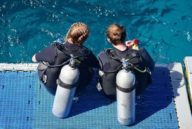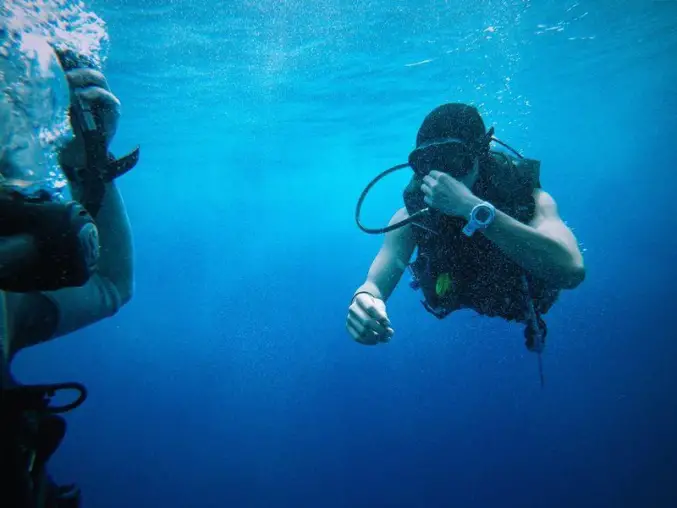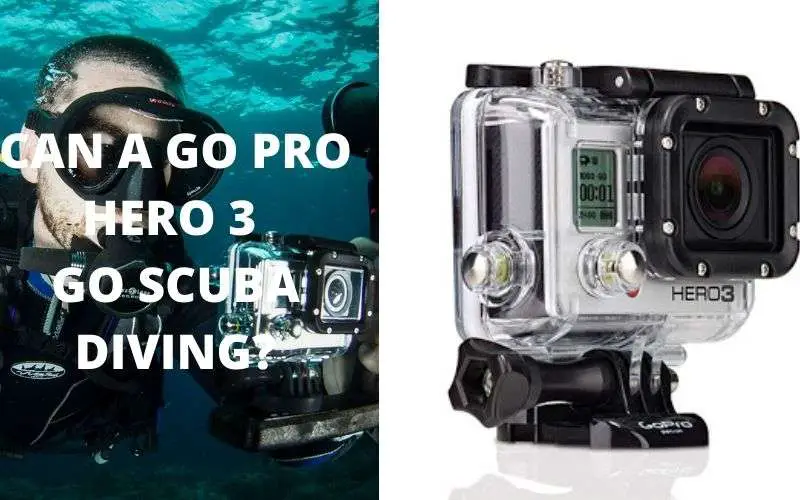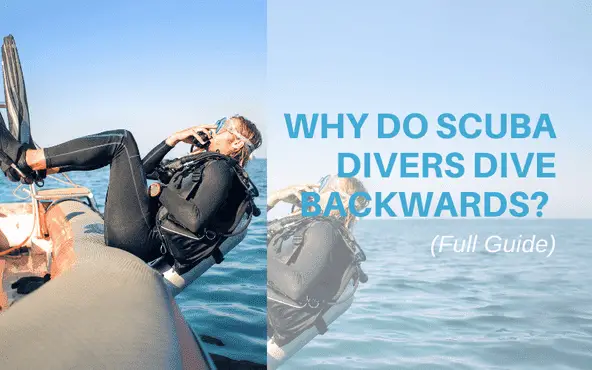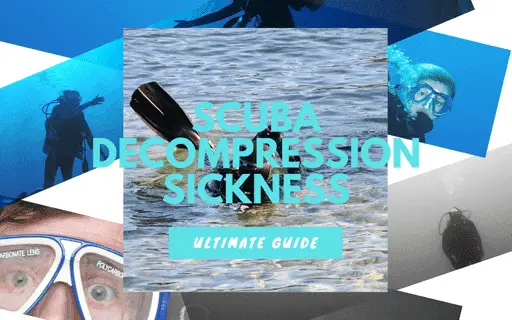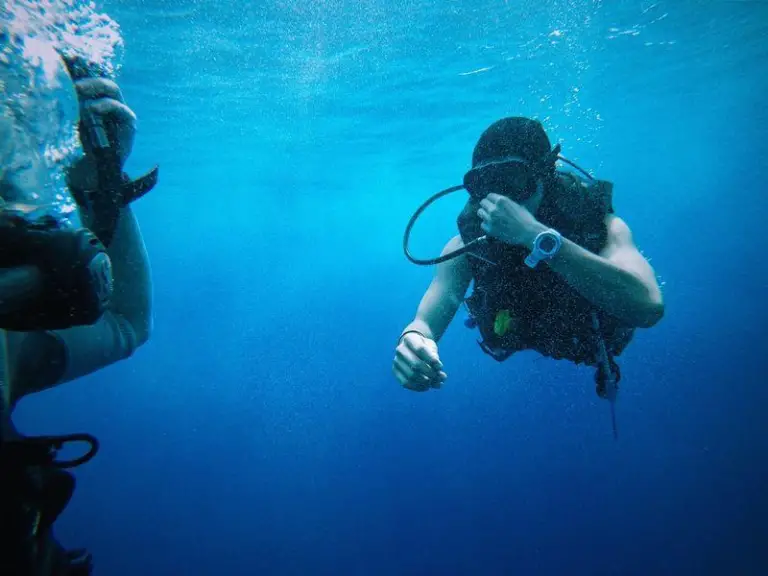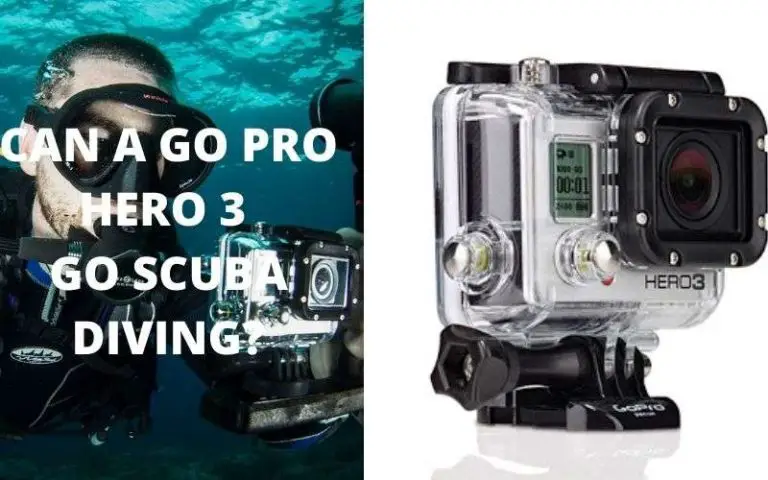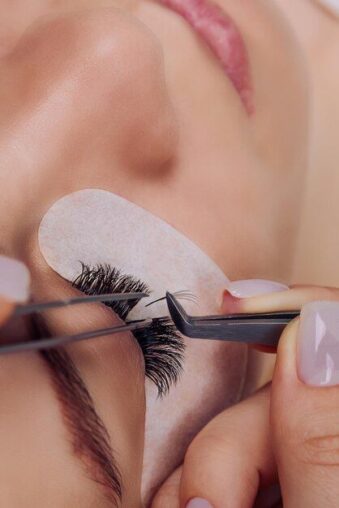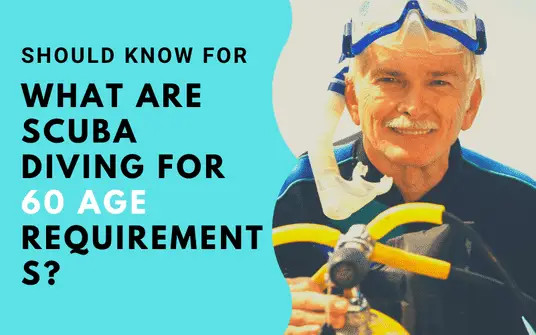
Most researchers state that carbon dioxide retention is a primary issue about safety for divers. It is commonly found in people age 60 or above.
The issue mostly occurs during heavy exertion and mostly happens at the time of deep dive.

It brings breathing problems in older adults who have a weaker immune system. Retaining much carbon dioxide in the lungs can lead to seizures, mental confusion, and sometimes people might lose their senses while diving.
people usually ask what is the maximum age for scuba diving?
Well! There is no limitation on diving under seawater. In the research, analysts looked at the reactions of people of 10 grown-ups running in age from 19 to 39 to those of another gathering of 10 more established grown-ups people of age from 58 to 74.
None of the divers had a past filled with lung or heart disorder. In our blog post, we will explore that it is good to dive even in old ages? So is there any safety or age limit for scuba diving?
Do those people require special care and safety to dive deep in seawater? Well! Diving at any age can be done with personal experiences and safety requirements. Although as the age grows, people start losing their energy level.
However, it tends to be more great and exciting if they follow diving requirements to cheer up each deep dive.
What qualifications do you need to be a scuba diver?
To qualify for scuba diving, you need to pass a PADI Scuba Diver course called the Junior Scuba Diver course. You should be ten years of age or older.
You need sufficient swimming aptitudes and should be in acceptable physical health.
You should not take a vehicle for a drive if you are not yet prepared to utilize it appropriately. Scuba diving is a sheltered game as long as you play it with rules.
So, what age to stop diving? Is there any limitation for diving after the age of 50? All you have to make yourself clear and proficient with diving training.
Before you start proficient diving training, you should pass a severe clinical test by a specialist affirmed by the Health and Safety Executive (HSE).
You should likewise pass a healthcare test every year all through your diving journey. You may think that it’s helpful to have an understanding of recreational SCUBA plunging before preparing like a professional diver; however, this isn’t fundamental.
Many expert diving schools offer different skills and programs to help you choose whether you would be fit to go for submerged.
You do not need any scholarly capabilities to learn all possible diving skills. Also, to function as a business diver, you will require your industry’s correct abilities and capabilities, just as figuring out scuba diving at 70 age. For instance:
- Some seaward divers may require a degree in studying or building.
- Construction divers may require capabilities in welding or non-ruinous testing.
- Most logical divers have a degree in oceanography or sea life science.
- Police or military divers should, as of now, be serving in power.
For proficient diving, it is basic that you have a modern HSE medical aid at work capability. Some inshore managers may likewise anticipate that you should have this specific medical aid preparation. You can frequently consolidate this with your accurate diving training.
Is there a weight limit for scuba diving?
Some people are overweight, but they would love to dive even in old ages. Some ask whether there’s a weight breaking point to scuba diving.
The simple answer is no; there isn’t a weight limit in scuba diving. In any case, scuba diving is a game, and as like most games, scuba diving at 70 age requires a specific degree of wellness to take an interest.
So while there isn’t a weight cutoff to figure out how to dive perfectly even in high weight, you may wish to consider the suggestions for you if you are unreasonably overweight or have other health-related issues.
Ladies should add 4 to 5 pounds of weight if they are making a dive in saltwater or take away 4 to 5 pounds if they are going to take a dive in freshwater.
Men should add 6 to 7 pounds if making a dive in saltwater or deduct six to 7 pounds if making a deep dive freshwater.
Being overweight or older can have antagonistic impacts in diving. Similar to other non-diving issues that can affect an individual’s health because of diving. You may experience several problems if your body mass record is more than 25.
Is scuba diving dangerous after 60?
The most regular root causes of injuries in scuba diving are out of breathing gas, yet the explanations behind this are not indicated. It can likely happen because of the absence of experience.
Scuba diving is entirely good for the greater part of us as we get more seasoned. However, there are a few things to remember for safe scuba diving at 70 age.
As there is 65%of old populace in many nations and with signs of progress in medication and way of life, an ever-increasing number of seniors have dynamic existences.
Also, recent statistics have shown that no huge increment in diving sessions happens among seniors.
Can you allow for scuba dive if you are overweight?
As we have talked about the maximum age for scuba diving, but what about being overweight?At the point when you are fat, you have an expanded body structure.
Sometimes people who are overweight bound themselves to do any sports. At the older ages, nitrogen gradually develops in fat cells and set aside a long effort to scatter. It implies large individuals are bound to create DCS.
Also, diving computers are adjusted with plunge tables, which are dependent on considers done on individuals with body weight in the solid range.
As they are not fully balanced bodies because of fat muscles, this may build DCS’s danger in large divers.
Well! If you are large or feel overweight for diving, it is emphatically suggested that you should consult with a diving specialist before adopted any diving movement.
Almost certainly, you will be needed to have an up-close and personal clinical where numerous elements other than your weight can be considered.
Your diving specialist would then be able to advise you about all precaution steps that will improve your diving health.
What about the most important rule of scuba diving?
There are certain rules you have to follow even if you are overweight. Some important things to consider are mentioned below:
- Do not ever hold your breath:
As each diving student knows, this is the most significant principle of scuba. What’s more, all things considered, that breath-holding diving can bring about genuine injury and even it may cause death. As per Boyle’s law, the diver’s lungs’ air extends during rising and agreements during the plunge.
- Practice safe climbs
Nearly as significant as breathing persistently is making a point to climb gradually and securely consistently. Suppose the divers surpass a sheltered rising rate, the nitrogen consumed into the circulatory system. Sometimes the absorbed nitrogen gas can cause pressure decrease on the surface level.
- You have to stay genuinely fit.
Well! Diving is one of the demanding games, but it requires some important things to follow. You need to quite a bit within recent memory of diving is unwinding, long surface swims, making a solid dive current, conveying apparatus, and exposure to extraordinary climate all consolidate to make diving a great action. Keeping up an adequate degree of personal health, it is vital to dive securely. The absence of physical fitness prompts overexertion, which can thusly prompt quicker air utilization and quick session.
What happens if you cough while scuba diving?
It’s entirely perfect to cough while using the air controller until your aviation route is clear. Suppose you feel that obvious tickle in the rear of your throat, attempt to move into an open region where you won’t find anything. Likewise, know about your lightness as you may forcefully hold your breath.
You have to avoid yourself from diving too deep if you have chest cold issues. If you have experienced any respiratory disease, then you need to avoid diving into saltwater.
It implies regardless of how great you feel, doesn’t dive if you are hacking up bodily fluid or if your breathing produces any anomalous commotion or obstruction. To decrease the inclination for bodily fluid block after a chest cold, drink a lot of water before diving to avoid these issues.
Sniffling is a common activity in underwater. It happened with a lot of divers. It is somewhat similar to the duck’s reverberation – because you have never heard one, it doesn’t mean it’s impossible. The feeling of sneeze underwater isn’t likely bad for your health. But if you feel cold, then you should avoid taking deep dives.
Final verdict:
Analysts estimated how the divers’ lungs performed very still and at two degrees of activity at both typical weight levels and those accomplished during diving of 60 feet deep water. So what age to stop diving?
Well! The diver can be of any age; he or she must fulfill the health need that a young diver has and experience lifelong fun. So, it is proved that if a person’s age is above 59, even then they can go for a deep dive only if they follow the safety terms.

